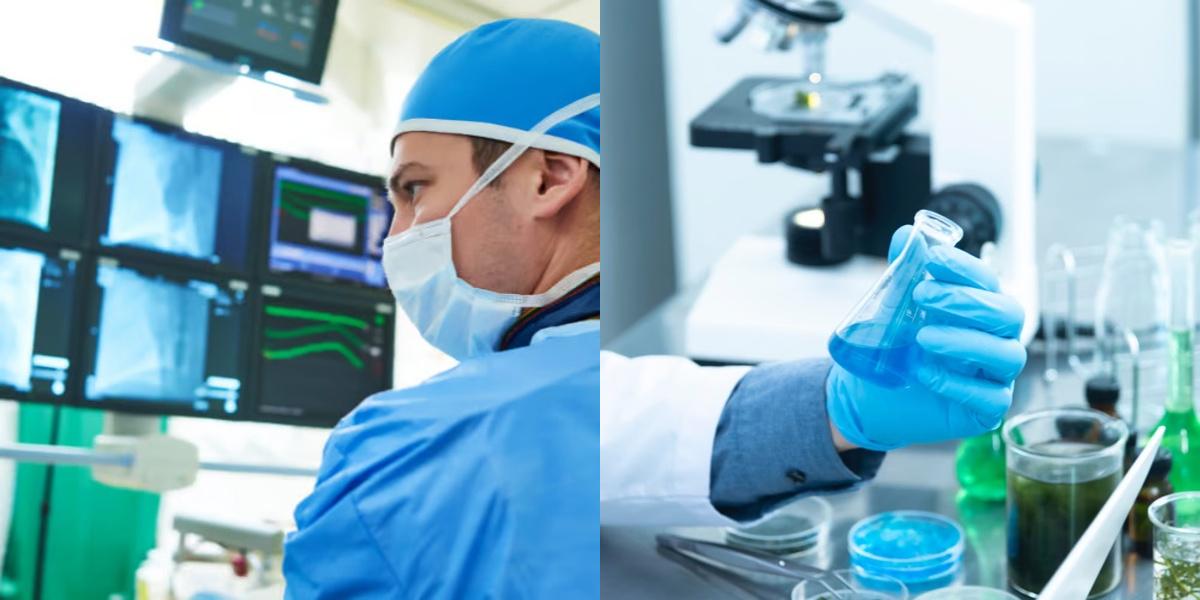Radiology Technician vs Sterile Processing Technician

In the field of healthcare, there are many different career paths to choose from. Two popular options are becoming a radiology technician or a sterile processing technician. Both of these careers offer unique opportunities to work in a medical setting and make a difference in patients' lives. However, there are some key differences between the two roles. In this blog post, we will explore what it means to be a radiology technician and a sterile processing technician, as well as the differences between the two.
Radiology Technician vs Sterile Processing Technician: Education and Training
-
Radiology Technician: To become a radiology technician, one must complete an accredited radiologic technology program. These programs are typically offered by community colleges, universities, or hospitals and can take anywhere from one to four years to complete, depending on the level of education desired. After completing the program, graduates must pass a certification exam to become a registered radiologic technologist.
-
Sterile Processing Technician: The education and training requirements for sterile processing technicians vary by state and employer. Some employers may require a high school diploma or GED, while others may prefer candidates with a certificate or associate's degree in sterile processing or a related field. Many community colleges and vocational schools offer sterile processing programs that can be completed in one to two years. After completing the necessary education, sterile processing technicians may need to pass a certification exam to become certified.
Radiology Technician vs Sterile Processing Technician: Career Outlook and Salary
-
Radiology Technician: The career outlook for radiology technicians is quite promising. According to the Bureau of Labor Statistics, employment of radiologic technologists is projected to grow 9 percent from 2020 to 2030, faster than the average for all occupations. The median annual wage for radiologic technologists was $64,380 in May 2020, with the highest 10 percent earning more than $94,370.
-
Sterile Processing Technician: The career outlook for sterile processing technicians is also promising. With the increasing emphasis on infection control in healthcare settings, the demand for sterile processing technicians is expected to grow. According to the Bureau of Labor Statistics, employment of medical equipment preparers, which includes sterile processing technicians, is projected to grow 8 percent from 2020 to 2030. The median annual wage for medical equipment preparers was $38,610 in May 2020, with the highest 10 percent earning more than $56,960.
Final Thoughts
Both radiology technicians and sterile processing technicians play important roles in the healthcare industry. While their responsibilities and areas of expertise may be different, both careers offer opportunities to work in a medical setting and make a difference in patients' lives. Whether you are interested in capturing diagnostic images or ensuring that medical instruments are properly sterilized, both paths can lead to fulfilling and rewarding careers. It's important to carefully consider your interests, skills, and educational goals when choosing between becoming a radiology technician or a sterile processing technician.
Dreambound's educational programs cater to aspiring individuals seeking diverse opportunities. Gain a more comprehensive understanding of the potential within these two vocations by exploring further details at:

Vduani Martinez is a part of the Growth team at Dreambound. She creates and fixes workflows and automation to guarantee seamless operations. On top of that, she manages databases to ensure all information is up to date. Vduani is a licensed Electronics Engineer who loves coffee and is a travel enthusiast. Out of the office, she enjoys going on road trips and discovering new cafes and restaurants.



